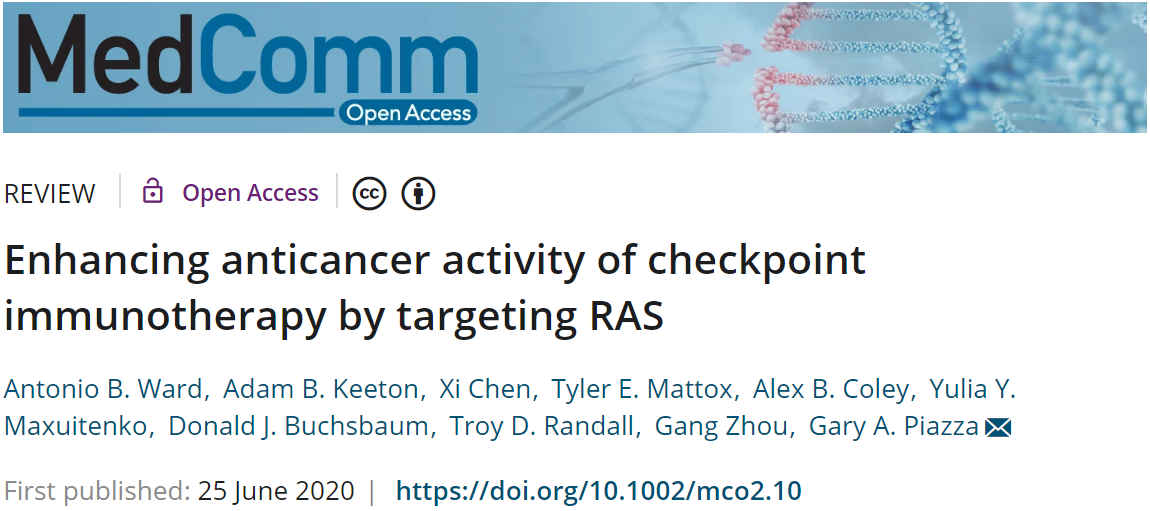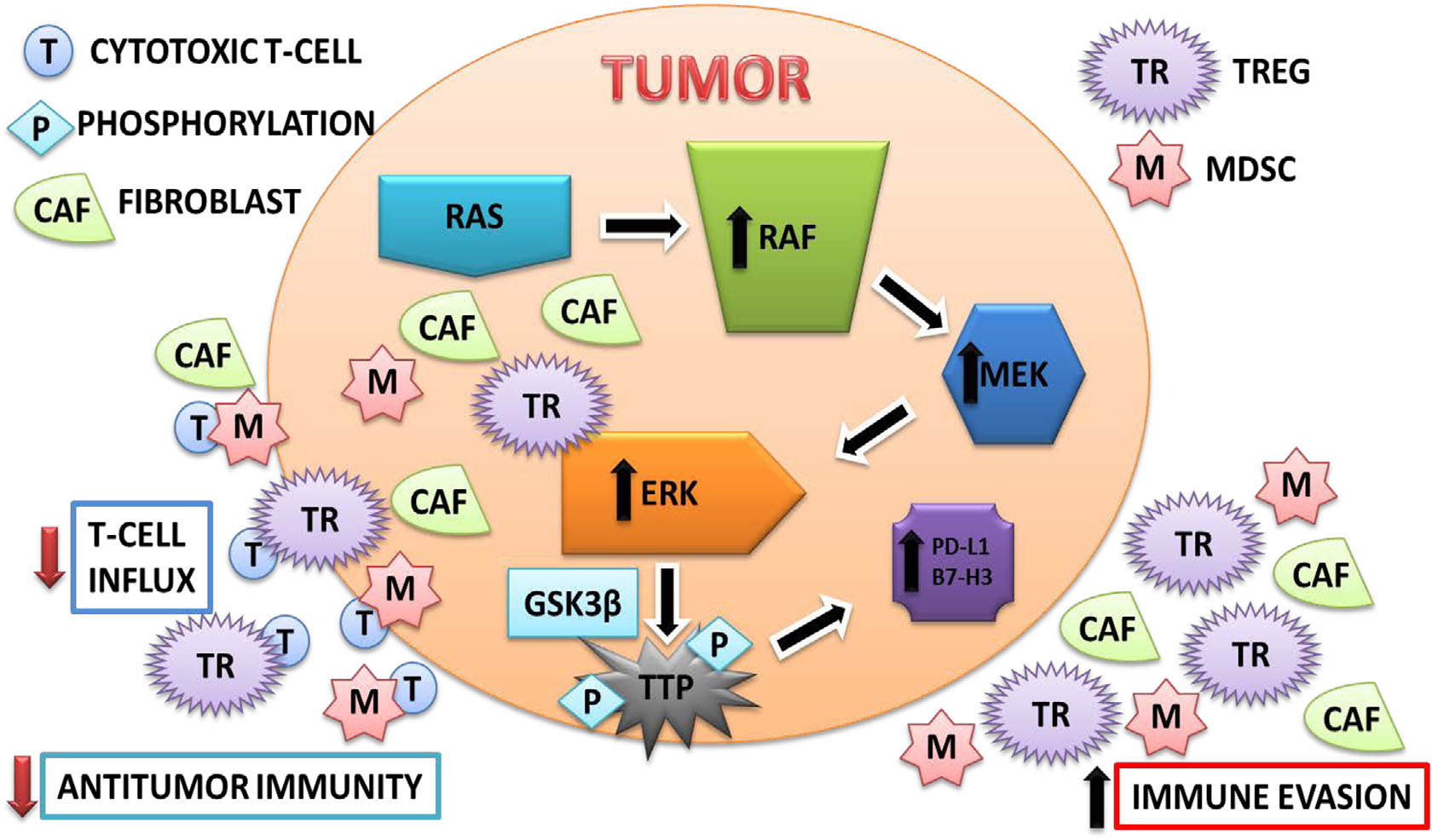Though checkpoint immunotherapy has seemed to achieve much success in clinic application these days, a huge proportion of patients with RAS-driven tumors are still suffering from resistance to therapy and poor clinical outcomes. In this review, Antonio B. Ward et al reported the potential of RAS inhibitors to enhance or broaden the anticancer activity of currently available checkpoint immunotherapy.

Approximately 30% of human cancers harbor a gain‐in‐function mutation in the RAS gene, resulting in constitutive activation of the RAS protein to stimulate downstream signaling, including the RAS‐mitogen activated protein kinase pathway that drives cancer cells to proliferate and metastasize. RAS‐driven oncogenesis also promotes immune evasion by increasing the expression of programmed cell death ligand‐1, reducing the expression of major histocompatibility complex molecules that present antigens to T‐lymphocytes and altering the expression of cytokines that promote the differentiation and accumulation of immune suppressive cell types such as myeloid‐derived suppressor cells, regulatory T‐cells, and cancer‐associated fibroblasts. Together, these changes lead to an immune suppressive tumor microenvironment that impedes T‐cell activation and infiltration and promotes the outgrowth and metastasis of tumor cells. As a result, despite the growing success of checkpoint immunotherapy, many patients with RAS‐driven tumors experience resistance to therapy and poor clinical outcomes. Therefore, RAS inhibitors in development have the potential to weaken cancer cell immune evasion and enhance the antitumor immune response to improve survival of patients with RAS‐driven cancers. This review highlights the potential of RAS inhibitors to enhance or broaden the anticancer activity of currently available checkpoint immunotherapy.
 Fig. 1 Oncogenic RAS signaling increases tumor immune evasion.
Fig. 1 Oncogenic RAS signaling increases tumor immune evasion.
Article Access: https://onlinelibrary.wiley.com/doi/10.1002/mco2.10
Website for MedComm: https://onlinelibrary.wiley.com/journal/26882663
Looking forward to your contributions.






